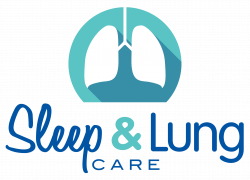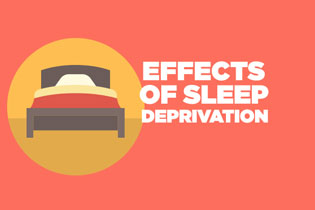Sleep insufficiency
What is sleep insufficiency?
This is the term doctors use when a person does not get enough restful sleep. Sleep insufficiency is different from insomnia, which is when a person has trouble falling or staying asleep. In both cases, the person might sleep less than they should, and have trouble staying alert during the day. But in general, people with sleep insufficiency would be able to sleep if they had the chance. Usually, there are things outside their control keeping them from getting restful sleep.Why is sleep important?
You need sleep in order to feel awake during the day, to be alert enough to do your normal activities, and to keep your body healthy. If you do not get enough sleep, or do not get restful sleep, it can lead to problems. Lots of different things can get in the way of sleeping. For example, you might work long hours, care for family members, or have health problems that make it hard to fall or stay asleep. Or you might get enough total hours of sleep, but wake up often and not feel rested afterwards.How much sleep do I need?
It is different for every person. Most adults need about 7 to 9 hours of sleep each night inorder to feel awake enough during the day. But some people feel rested after a shorter sleep, and others need more sleep to feel alert the next day.What are the symptoms of not getting enough sleep?
If you are not getting enough sleep, you might:- Have trouble staying awake to do your normal activities
- Have trouble thinking clearly or focusing
- Feel sad, anxious, or irritable
- Fall asleep at inappropriate times, such as at work or while driving
Can not getting enough sleep lead to problems?
Yes. If you do not get enough sleep, or if you do not feel rested after sleeping, this can lead to problems like:- Accidents – If you fall asleep while driving, you could be seriously hurt or killed. You could also accidentally hurt or kill another person. Accidents can also happen if you are too tired or fall asleep while you are caring for a baby or child.
- Work problems – If you are too tired at work, you can make mistakes. As a result, you could get into trouble or lose your job. Depending on the work you do, it could also be dangerous for you or for others.
- Health problems – Not getting enough restful sleep over time can affect your health. Your immune system might have trouble doing its job to protect your body from infections. You might also be at higher risk for obesity and heart disease.
- Stress – If you feel tired all the time, you might stop doing activities you used to enjoy, like spending time with friends or your partner. It can also be stressful and embarrassing to fall asleep at inappropriate times.
Should I see a doctor?
Yes. If you are not able to get enough sleep, or if you feel tired every day even after sleeping, talk to your doctor or nurse. They can help you figure out ways to improve your sleeping.Will I need tests?
Probably not. Your doctor or nurse will probably be able to tell if you have sleep insufficiency just by talking to you. He or she might also ask you to keep a daily log for 1 to 2 weeks, where you keep track of how you sleep each night. If your doctor wants to learn more about your sleeping patterns, he or she might suggest something called “actigraphy.” This involves recording activity and movement with a monitor, usually worn on your wrist. The test is done at home, over 1 to 2 weeks. It will record how much you actually sleep and when.Are there treatments that can help?
The main treatment is to improve your habits to try to get more and better sleep. Doctors call this following good “sleep hygiene.” That means that you:- Sleep only long enough to feel rested and then get out of bed
- Go to bed and get up at the same time every day
- Do not try to force yourself to sleep. If you can’t sleep, get out of bed and try again later.
- Have coffee, tea, and other foods that have caffeine only in the morning
- Avoid alcohol in the late afternoon, evening, and bedtime
- Avoid smoking, especially in the evening
- Keep your bedroom dark, cool, quiet, and free of reminders of work or other things that cause you stress
- Solve problems you have before you go to bed
- Exercise several days a week, but not right before bed
- Avoid looking at phones or reading devices (“e-books”) that give off light before bed. This can make it harder to fall asleep.
- Avoid long naps if you have trouble sleeping at night, especially in the late afternoon. Short naps (about 20 minutes) can be helpful, especially if your work schedule changes day to day and you need to be alert at different times.
Other things that can improve sleep include:
- Relaxation therapy, in which you focus on relaxing all the muscles in your body 1 by 1
- Working with a counselor or psychologist to deal with the problems that might be causing poor sleep

